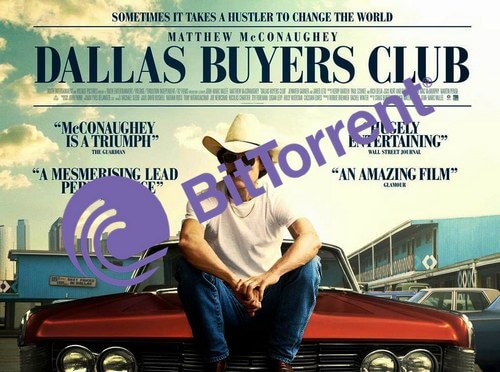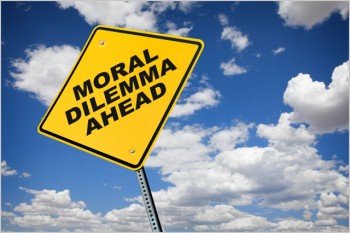As if pirates haven’t received enough bad press recently, a court in Australia has ruled that ISPs iiNet, Internode and Dodo amongst others, must hand over the details of customers who have illegally downloaded Dallas Buyers Club by using Bit Torrent. In what is seen as a landmark judgement, Justice Nye Perram (pictured) ruled in favour of Dallas Buyers Club LLC, who will now presumably seek damages and write nasty letters to about 4700 internet customers who are alleged to have downloaded the film.
A can of worms
One could postulate that the word landmark is much overused nowadays, but there’s no doubt that this ruling, if it stands, could be yet another serious infringement of online privacy, if indeed that Shangri La wasn’t killed off already by snooping governments and greedy lawyers. The ISPs named in the case will be appealing, but one has to check the tip of this particular iceberg on whatever other information ISPs may divulge about you, either now or in the future. The UK government introduced an opt-out scheme for porn related sites some time ago and surprise surprise, at three of the UK’s top four ISPs, over 92% of users opted out of the porn filters, dooming the entire scheme to abject failure. I mention this fact because the internet is a wild tiger to tame and cannot be done in tidbits; ask any self respecting dictatorship like North Korea or Turkey and they’ll simply tell you how to do it effectively, just block it.
But of course many companies in our so called democracies prefer to harass individuals instead by writing threatening letters and invoking their speculative invoicing clause, by which they send alleged infringers invoices commonly accompanied by intimidating letters and threats of legal action. To the judge’s credit, he has insisted on privacy obligations related to the information to be disclosed by the ISPs and required them to submit a draft of the letter they propose to send account holders to the court for approval.
However, as an indication that this scare tactic is doomed to failure, just read this quote attributed to Michael Wickstrom, Vice President Royalties and Music Administration of Voltage Pictures, the parent company of Dallas Buyers Club LLC:
There are no scare tactics there are only facts……a lot of those letters are going to military folks, schools, halfway houses, the mentally disabled and welfare recipients.
If we start proceedings in Australia I will make it clear to local counsel ‘you will not pursue the handicapped, welfare cases or people that have mental issues or the military’ and that’s the majority of what’s going on with the download.
We’re very concerned about the press saying ‘how dare Voltage pursue a military veteran or an autistic child’ as that sort of press would ruin us. It’s not about the money here, it’s about stopping illegal piracy.”
Well f*ck you Michael! If I’m a self respecting, swashbuckling pirate, enjoying my life of torrenting with gay abandon and I’m not a mentally handicapped soldier on social welfare teaching at a school for old people living in a halfway house, I’d feel a bit miffed at being singled out from my fellow pirates, wouldn’t you?
The burden of proof
It’s going to be tricky for the Hollywood studios to prove wrongdoing against any particular individual and let’s not forget that the proposed letter is simply an allegation and nothing more. Who’s to say that you, as the registered user of the internet service, were running an unsecured wi-fi router or indeed were free and easy with your wifi key to the extent that another user with a different MAC address downloaded the content illegally through your router? I mean, it’s not yet illegal to leave your router unsecured is it? It’s also interesting to note that Voltage Pictures is pursuing a similar action against hundreds of people in Colorado for downloading the film and in one case is demanding $150,000 from a man who downloaded it or $8,000 if he settles out of court. Similar actions are being pursued by Voltage in Singapore and one wonders if other film companies will watch and follow suit.
It’s an interesting case to follow and apart from generating some great publicity for the film, it’s serving to set the cat amongst the pigeons in the pirate community.
If this is upheld then the days of anonymous pirating may be over ~~ Michael Fraser, Professor of Law at the University of Technology, Sydney.
Hey Prof, what other kind of pirating would you suggest? Benign, named, distinctive pirating?






So does that mean 4700 Aussie’s have not heard of a VPN service.
I presume you’re asking that question tongue-in-cheek Craig.
The point is that Aussies haven’t needed a VPN. There is a proposal to introduce a 3-strike anti-piracy policy later this this year but other than that, there has been no indication that anyone would be charged with anything for downloading movie torrents, so this case pretty much came out of the blue.
Well sought of but not really. 🙂
Which just goes to show that the law really is an ass. How on earth are they going to prove beyond doubt exactly who was responsible for downloading the movie torrents.
Judge: You have been charged with illegally downloading a movie.
Defendant: But sir, my house was full of people that day, all of whom had access to my computer and wi-fi network. I have no idea which one of them might have committed this heinous crime.
This ruling also demonstrates a clear case of reverse discrimination. If a crime has truly been committed, why would the military, handicapped, and welfare recipients be exempt from charges? Would similar exemptions apply for say break and enter or embezzlement?
None of this makes any sense, except purely as a scare tactic. What a waste of time, effort, and resources!
I’ve not seen this one yet. “Your Honour, my internet connection was hi-jacked. I was not me!”. This now means big business for the VPN industry as they get flooded with new members, Mindblower!
I thought the media industry had learned it’s lesson and had more or less stopped bothering private individuals – clearly they think Australia might be a lucrative new fine market for them. As for the damages being claimed in the mentioned case surely their only loss in respect of one individual downloading is the value of a theater ticket or cost of a DVD?
I suspect a lot of illegal downloading occurs because of their devisive regional release – who wants to only see a movie two months after people in the US see it – they could eliminate a lot of piracy by worldwide release dates and by providing DVDs a week or so after the theater release periods.
They should remember that they have custody of an art form and be less concerned about maximising profits.
I don’t know what all the fuss is about anyway.
Dallas Buyer’s Club will NEVER be a classic.
Then again, that might be the reason. They are trying to re-coupe production costs.
I am in Australia and on one of those ISP’s. I have not downloaded that particular movie and don’t go near Torrent sites. However, because we get TV shows here often 6-8 months after they are realeased overseas, I do got some of them via the internet. I have just decided to go VPN as a result of this Govt heavy handed crap.
With the music industry at least, the charge in the U.S. has always been sharing, not downloading. The reason being one can never be sure what the specific file(s) are you’re getting just by the name, but if you possess said files and then make them available to others, you’re culpable.